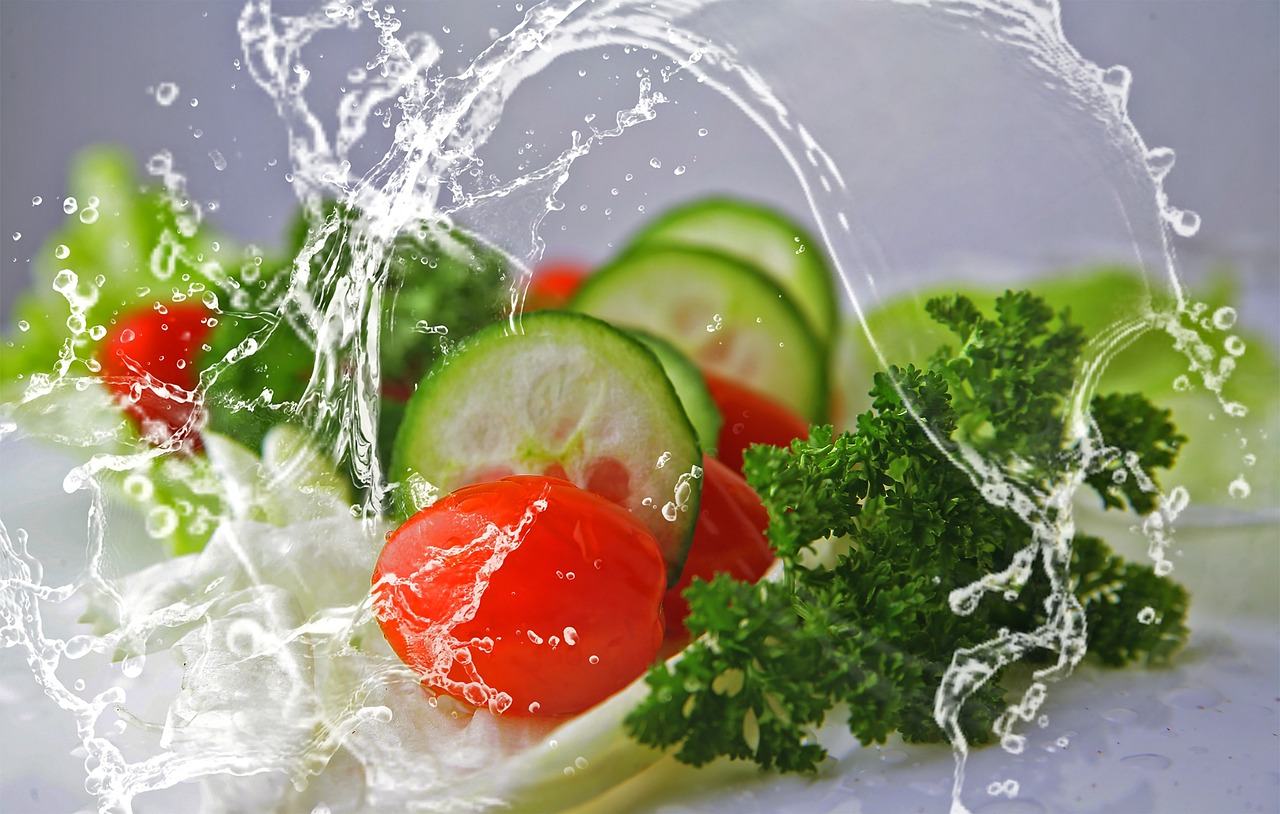Personal Care
How to Boost Immunity Naturally: 10 Tips to Execute This

In an era where health is paramount, the immune system stands as the front-line defender against various infections and illnesses. Strengthening this intricate system is essential for overall well-being. While there is no magic bullet for a robust immune system, adopting a holistic approach that combines a healthy lifestyle, nutrition, and positive habits can significantly enhance your body’s natural defenses. If you want to boost immunity naturally, this article is for you.
Now, we will delve into various strategies and practices that contribute to boosting immunity naturally.
Table of Contents
Understanding the Immune System
Before we embark on our journey to fortify the immune system, let’s take a moment to understand its complexity. The immune system comprises a network of cells, tissues, and organs working collaboratively to defend the body against harmful invaders such as viruses, bacteria, and toxins. It is a dynamic system influenced by various factors, including lifestyle, nutrition, and environmental conditions.
1. Prioritize a Nutrient-Rich Diet: The Foundation of Immunity
A well-balanced and nutrient-dense diet forms the cornerstone of a strong immune system. Ensure your plate is filled with a variety of colorful fruits, vegetables, whole grains, lean proteins, and healthy fats. Key immune-boosting nutrients include:
- Vitamin C: Found in citrus fruits, strawberries, bell peppers, and broccoli, vitamin C supports the production and function of white blood cells.
- Vitamin D: Essential for immune function, vitamin D is synthesized by the body through sunlight exposure. Include fatty fish, fortified dairy products, and sunlight in your routine.
- Zinc: Present in nuts, seeds, legumes, and lean meats, zinc plays a crucial role in immune cell development and function.
- Probiotics: These beneficial bacteria, found in yogurt, kefir, and fermented foods, contribute to a healthy gut microbiome, positively influencing immune responses.
2. Hydration: The Elixir of Health
Proper hydration is often overlooked but is fundamental to immune health. Water helps flush out toxins, ensures optimal organ function, and supports the production of lymph—a key component of the immune system. Aim to drink at least eight glasses of water daily and incorporate hydrating foods like watermelon, cucumber, and celery into your diet.
3. Prioritize Quality Sleep: Restorative for Immune Function
The importance of quality sleep in immune function cannot be overstated. During sleep, the body undergoes crucial repair and regeneration processes. Lack of sleep can impair immune cell function and increase susceptibility to infections. Aim for 7-9 hours of uninterrupted sleep each night to reap the full benefits of this natural immune booster.
4. Regular Exercise: Mobilizing Immune Cells
Engaging in regular physical activity is not only beneficial for cardiovascular health but also plays a role in immune function. Exercise promotes the circulation of immune cells, enhances antibody production, and reduces inflammation. Aim for at least 150 minutes of moderate-intensity exercise per week, incorporating activities you enjoy, such as walking, jogging, or yoga.
5. Stress Management: Calming the Immune Storm
Chronic stress can weaken the immune system, making the body more susceptible to infections. Incorporate stress-management techniques into your routine, such as meditation, deep breathing exercises, or mindfulness practices. These activities help regulate the stress hormone cortisol and promote overall well-being.
6. Herbal Allies: Nature’s Immune Enhancers
Certain herbs have long been recognized for their immune-boosting properties. Consider incorporating the following into your routine:
- Echinacea: Known for its immune-stimulating properties, echinacea can be consumed as a tea or supplement during cold and flu seasons.
- Garlic: A potent antimicrobial and immune enhancer, garlic can be added to various dishes for both flavor and health benefits.
- Turmeric: With its active compound curcumin, turmeric possesses anti-inflammatory and antioxidant properties that support immune health.
7. Maintain a Healthy Weight: Balance for Immune Harmony
Maintaining a healthy weight is crucial for immune function. Obesity is linked to chronic inflammation, which can impair the body’s immune responses. Adopting a balanced diet and engaging in regular physical activity contribute to weight management and overall immune harmony.
8. Sun Exposure: The Vitamin D Connection
Sunlight is a natural source of vitamin D, a key player in immune health. Spend time outdoors to ensure adequate sun exposure, particularly during the sunnier months. However, be mindful of sun protection to prevent skin damage.
9. Hygiene Practices: Simple Measures for Immune Defense
Basic hygiene practices, such as regular handwashing, can significantly reduce the risk of infections. Proper hygiene prevents the spread of pathogens and supports the immune system in its defense against external threats.
10. Social Connection: The Immune-Boosting Power of Relationships
Building and maintaining positive social connections contribute to emotional well-being, which, in turn, supports immune function. Surround yourself with a supportive network of friends and family, engage in meaningful conversations, and foster a sense of belonging.
Nurturing Your Body’s Defense System
A resilient immune system is the result of a holistic approach to health and well-being. By prioritizing a nutrient-rich diet, staying hydrated, getting quality sleep, managing stress, and adopting positive lifestyle habits, you empower your body to defend itself naturally. Remember, consistency is key, and small, sustainable changes can make a significant impact on your immune resilience. Embrace these practices, and let your journey to a stronger, healthier immune system begin.
FAQ about Boost Immunity Naturally
- Why is it important to boost the immune system naturally?
- Boosting the immune system naturally helps defend the body against infections, viruses, and illnesses, contributing to overall health and well-being.
- What are some natural ways to enhance immune function?
- Natural methods include adopting a balanced diet, staying hydrated, getting regular exercise, ensuring adequate sleep, managing stress, and incorporating immune-boosting foods and supplements.
- How does nutrition play a role in immune support?
- Nutrient-rich foods provide essential vitamins and minerals that support immune function. A well-balanced diet with a variety of fruits, vegetables, and whole grains contributes to a healthy immune system.
- Can specific foods or supplements boost immunity?
- Certain foods, such as citrus fruits, garlic, ginger, and probiotics, are known for their immune-boosting properties. Additionally, supplements like vitamin C, vitamin D, and zinc can support immune health.
- What role does hydration play in immune support?
- Staying hydrated is crucial for overall health, including immune function. Water helps transport nutrients, flush toxins, and maintain the balance necessary for the immune system to function optimally.
- How does regular exercise contribute to immune health?
- Regular physical activity promotes good circulation, which allows immune cells to move freely throughout the body. Exercise also helps manage stress, another factor that can impact immune function.
- Is there a recommended sleep duration for immune support?
- Quality sleep is essential for immune health. Most adults need 7-9 hours of sleep per night, and consistent, restful sleep supports the body’s ability to repair and regenerate.
- Can managing stress positively impact the immune system?
- Chronic stress can weaken the immune system. Practices such as mindfulness, meditation, and relaxation techniques can help manage stress and support immune health.
- Are there lifestyle habits that may compromise immune function?
- Unhealthy lifestyle habits, such as smoking, excessive alcohol consumption, and poor dietary choices, can weaken the immune system. Adopting a healthy lifestyle is crucial for optimal immune function.
- How long does it take to see improvements in immune function through natural methods?
- Consistency is key. While some improvements may be noticed relatively quickly, long-term immune support requires consistent adherence to healthy habits over time.
- Should individuals with specific health conditions consult a healthcare professional before making changes to boost immunity naturally?
- Yes, individuals with underlying health conditions or those taking medications should consult a healthcare professional before making significant changes to their diet or lifestyle for immune support.
See this video from Youtube: Make Your Immune System Bulletproof Now
Personal Care
How to Reparent Your Inner Child: Healing and Self-Compassion

Reparenting your inner child is a transformative process that allows you to heal emotional wounds from the past and cultivate a nurturing relationship with yourself. This practice involves recognizing and addressing unmet needs from childhood, fostering self-compassion, and developing healthier coping mechanisms. In this guide, we’ll explore what reparenting entails, its benefits, and practical steps to begin your journey toward emotional well-being.
Understanding the Inner Child
The concept of the “inner child” refers to the part of your psyche that retains the emotions, experiences, and memories from your early years. This aspect of yourself can influence your thoughts, behaviors, and emotional responses in adulthood. Unresolved childhood experiences may manifest as self-doubt, fear of abandonment, or difficulty setting boundaries.
What Is Reparenting?
Reparenting is the process of providing the care, support, and nurturing that you may have lacked during your formative years. It involves:
- Acknowledging Past Wounds: Recognizing the impact of unmet needs and emotional injuries from childhood.
- Developing Self-Compassion: Treating yourself with kindness, understanding, and patience.
- Establishing Healthy Boundaries: Learning to say no and protect your emotional well-being.
- Cultivating Emotional Awareness: Identifying and processing your feelings in a healthy manner.
By reparenting yourself, you can break free from negative patterns and foster a more positive self-image.
Benefits of Reparenting Your Inner Child
Engaging in reparenting practices can lead to numerous psychological and emotional benefits, including:
- Improved Self-Esteem: Developing a stronger sense of self-worth and confidence.
- Enhanced Emotional Regulation: Managing emotions more effectively and reducing reactivity.
- Healthier Relationships: Building connections based on mutual respect and understanding.
- Reduced Anxiety and Depression: Alleviating symptoms associated with unresolved childhood trauma.
Signs Your Inner Child Needs Healing
Emotional Symptoms:
- Feeling “too sensitive” or overreacting to minor things
- Chronic self-doubt despite external success
- Fear of abandonment that affects relationships
- Difficulty receiving compliments or love
- Feeling like an imposter in adult roles
Behavioral Patterns:
- People-pleasing at your own expense
- Perfectionism that never feels “good enough”
- Self-sabotage when things go well
- Addictive behaviors (food, shopping, substances) to numb feelings
- Either clinging to or avoiding intimacy
Physical Manifestations:
- Unexplained body tension or pain
- Startle response to loud noises or sudden movements
- Sleep disturbances rooted in childhood fears
- Digestive issues linked to anxiety patterns
The Reparenting Process: Step-by-Step
Phase 1: Building Awareness
- Identify Your Triggers
- Keep an “emotional flashback journal”
- Note when reactions feel bigger than the situation warrants
- Look for patterns (certain tones of voice, types of criticism, etc.)
- Connect Present Reactions to Past Wounds
- Ask: “When was the first time I felt this way?”
- Look at childhood photos to spark memories
- Notice age regression in reactions (feeling like a teen, young child, etc.)
Phase 2: Meeting Core Needs
Safety Needs:
- Create physical safe spaces (a cozy corner, comforting textures)
- Develop grounding techniques for emotional safety
- Establish healthy boundaries with others
Attachment Needs:
- Practice secure self-attachment through daily check-ins
- Learn to self-soothe before seeking external comfort
- Build trust in yourself through small promises kept
Autonomy Needs:
- Support your own choices without self-judgment
- Celebrate small acts of independence
- Balance connection with healthy separation

Phase 3: Practical Reparenting Techniques
1. Dialoguing Exercises
- Write letters between your adult self and inner child
- Use your non-dominant hand for child-self writing
- Create “ideal parent” conversations
2. Nurturing Activities
- Revisit childhood joys (swings, finger painting, favorite childhood foods)
- Create routines your child self needed (consistent bedtimes, healthy meals)
- Develop comforting rituals (storytime before bed, Saturday morning cartoons)
3. Cognitive Restructuring
- Identify limiting childhood beliefs
- Create affirmations that counter old messages
- Develop new neural pathways through repetition
Advanced Healing Modalities
Somatic Approaches:
- Trauma-informed yoga
- EMDR therapy for childhood memories
- Biofeedback for emotional regulation
Expressive Therapies:
- Sand tray therapy
- Psychodrama techniques
- Music and art therapy
Attachment Repair:
- Ideal parent figure protocol
- Internal family systems therapy
- Group reparenting work
Common Challenges in Reparenting
Resistance:
- When self-care feels uncomfortable
- Overcoming the belief you don’t deserve care
- Dealing with the vulnerability of self-compassion
Regression:
- Managing childlike emotional states
- Balancing adult responsibilities with healing
- Handling feelings of shame about needs
Integration:
- Bringing healed parts into daily life
- Maintaining progress during stress
- Developing consistent practice
Measuring Your Progress
Signs of healing include:
- Fewer intense emotional triggers
- Increased self-compassion
- Healthier relationship patterns
- More joy and spontaneity
- Improved physical wellbeing
Remember: Healing isn’t linear. Some days you’ll feel like a nurturing parent to yourself; other days, the wounded child will take over. That’s normal.
When to Seek Professional Help
Consider therapy if you:
- Have a history of severe trauma
- Experience dissociation or memory gaps
- Struggle with self-harm or suicidal thoughts
- Find self-help methods aren’t enough
Therapeutic Approaches That Help:
- Internal Family Systems (IFS)
- EMDR
- Somatic Experiencing
- Attachment-based therapy
Daily Reparenting Practices
Morning Routine:
- Check in with how your inner child feels
- Set intentions for the day
- Offer reassurance about upcoming challenges
Throughout the Day:
- Pause before reacting to stressors
- Ask: “What does my inner child need right now?”
- Celebrate small wins
Evening Reflection:
- Review emotional experiences
- Comfort any distressed parts
- Express gratitude for growth
Incorporating Reparenting into Daily Life
Consistency is key when it comes to reparenting. Incorporate the following practices into your daily routine:
- Mindfulness Meditation: Cultivate present-moment awareness to connect with your emotions.
- Affirmations: Repeat positive statements that reinforce self-worth and resilience.
- Self-Care Rituals: Prioritize activities that promote physical, emotional, and mental well-being.
The Lifelong Journey
Reparenting isn’t about achieving some perfect healed state – it’s about developing an ongoing loving relationship with all parts of yourself. As life presents new challenges, you’ll continue discovering new layers to heal and nurture.
Remember: Every moment you spend reparenting yourself is rewriting your neural pathways and creating a new legacy – not just for yourself, but potentially for future generations.
From Youtube: Strategies for Reparenting the Inner Child
Personal Care
9 Things Dentists Would Never Do To Their Teeth — And Neither Should You

Your smile says a lot about you, and maintaining it takes more than just brushing twice a day. But have you ever wondered what dentists actually avoid when it comes to their own dental health? As it turns out, the people who spend their days fixing teeth have a strict list of personal “no-go” habits they stay away from — and for good reason.
Let’s explore the top 9 things dentists would never do to their own teeth, and what you can learn from their expert advice.
🚫 1. Dentists Never Use Their Teeth as Tools
From opening plastic packaging to ripping tape, many people use their teeth as a convenient backup tool — but that’s a shortcut dentists strongly warn against. Using your teeth this way can cause chipping, cracking, or even breakage, especially on your front incisors.
🦷 “Your teeth weren’t made to open bottles or plastic seals. That’s what scissors are for,” says Dr. Danny Snyder, DDS.
What to do instead: Always reach for proper tools. Avoid putting unnecessary pressure on your teeth that could lead to long-term damage.
🍿 2. Dentists Don’t Bite Down on Hard Foods Like Ice or Popcorn Kernels
Chewing on hard foods might feel satisfying, but it’s a fast track to cracked enamel and broken molars. Ice, unpopped popcorn kernels, and hard candies are among the most dangerous.
Dentist-approved advice:
Avoid crunching down on anything that doesn’t easily break apart in your hand. It’s not worth a fractured tooth or an emergency root canal.
🥤 3. They Avoid Constantly Sipping Sugary or Acidic Drinks
That leisurely iced coffee you sip all morning or the sports drink during workouts? Bad news for your teeth. Continuous sipping creates a prolonged acidic environment in your mouth, which wears down enamel and fuels cavities.
Tip from the pros: If you do drink sugary beverages, try to consume them in one sitting instead of nursing them over hours — and rinse your mouth with water afterward.
📏 4. They Never Skip Flossing (Even If They Brush Religiously)
Many people assume brushing alone is enough — but dentists know better. Flossing reaches up to 35% of the tooth surface that brushing simply can’t access.
🪥 “Flossing is like cleaning between the couch cushions — the stuff you miss can cause real problems later,” says Dr. Emily Ford, DDS.
Build the habit: Floss at least once daily. Consider using a water flosser if you struggle with traditional string floss.
😬 5. They Don’t Ignore Tooth Pain or Bleeding Gums
Dentists know that minor dental discomfort can be a sign of something much bigger — like infection, inflammation, or decay.
If you’re noticing sensitivity to temperature, pain when chewing, or gums that bleed regularly, don’t brush it off. These are early red flags your body is using to alert you.
Take action early: Addressing problems when they’re small saves you money, pain, and time later on.
🧃 6. They Avoid Brushing Immediately After Acidic Meals or Drinks
Brushing right after a glass of orange juice or a vinegar-heavy salad can actually damage your enamel — not protect it.
Why? Acids soften the enamel temporarily. Brushing during this window can cause erosion.
Dentist’s tip: Wait at least 30 minutes after consuming anything acidic before brushing. Rinse with water or chew sugar-free gum in the meantime to neutralize acid.
🧼 7. They Don’t Use Abrasive DIY Whitening Hacks
From baking soda to charcoal powder, DIY tooth whitening trends may promise pearly whites — but they can come with irreversible damage.
⚠️ “You can’t ‘scrub’ your teeth white without also scrubbing away enamel,” warns Dr. Lina Torres, DDS.
What to do instead: Stick with dentist-approved whitening products or get a professional treatment to safely brighten your smile.
🪥 8. They Don’t Use Hard-Bristled Toothbrushes
Hard bristles may feel like they’re doing a better job, but they’re harsh on enamel and gum tissue. Over time, they can cause recession and sensitivity.
Best practice: Use a soft-bristled brush and gentle, circular motions. An electric toothbrush with a pressure sensor is a great investment.
🕒 9. They Never Miss Regular Dental Check-Ups
Even dentists need dentists! Regular cleanings and exams are non-negotiable for maintaining oral health.
Skipping appointments can allow hidden issues — like cavities under fillings or early gum disease — to go unnoticed until they become major problems.
Golden rule: See your dentist at least every 6 months for a professional cleaning and oral exam.
🦷 Final Thoughts: Protect Your Smile Like a Pro
Dentists have a front-row seat to what not to do when it comes to dental care. By avoiding these common habits and embracing smarter oral hygiene routines, you’ll preserve your smile for years to come.
Remember: A little prevention today means fewer dental bills, less discomfort, and healthier teeth tomorrow.
Personal Care
Why Regular Massages Could Be the Game-Changer Your Body and Mind Crave

Table of Contents
In today’s whirlwind of deadlines, notifications, and never-ending to-do lists, it’s easy to feel like you’re constantly running on empty. Between juggling responsibilities and trying to keep stress at bay, how often do we pause and ask, “What does my body really need right now?”
Chances are, your body’s been whispering the answer all along: touch.
Not just any touch—healing, intentional, restorative touch. Massage therapy isn’t just an indulgence at a spa; it’s a centuries-old practice that’s now backed by modern science as a powerful tool for holistic wellness. From melting away physical tension to uplifting your emotional landscape, massage therapy has evolved into a sanctuary of healing for those seeking genuine self-care.
The Power of Human Touch: Why Massage Goes Deeper Than You Think
Let’s be real—there’s something undeniably magical about the human touch. It’s grounding, comforting, and surprisingly transformative. Massage therapy channels this innate need for connection and healing. With every skilled stroke, it whispers calm into our nervous system, unwinds tension coiled in our muscles, and invites our mind to slow down and just breathe.
Unlike quick fixes or surface-level remedies, massage reaches deeper—physically and emotionally. It reminds us of our humanity and nudges us back into balance.
Massage: An Ancient Practice That’s More Relevant Than Ever
You’re not the first to seek healing in the hands of a massage therapist. In fact, people have been doing it for over 4,000 years.
From the tombs of Egypt to the temples of ancient China and India, massage was recognized as both a science and an art—a way to restore vitality, ease discomfort, and align body with spirit. Today, modern massage therapy stands on the shoulders of these traditions, offering both time-tested wisdom and clinical effectiveness.
Why Massages Aren’t a Luxury—They’re a Lifestyle Shift
Let’s bust a myth: massage isn’t just for pampering or those with back pain. It’s a proactive, science-backed approach to health that supports your whole being—body, mind, and soul.
Whether you’re an athlete recovering from workouts, a new parent navigating sleepless nights, or a desk jockey with chronic shoulder knots, regular massage can recalibrate your system and bring much-needed harmony into your everyday life.
Here’s What Happens When You Make Massage a Habit
Stress and Anxiety Begin to Melt Away
Massage isn’t just relaxing—it’s chemically soothing. Studies show it lowers cortisol (your body’s main stress hormone) and boosts serotonin and dopamine—the happy hormones. That’s why you leave a session not just feeling better physically, but emotionally lighter too.
Techniques like Swedish massage—with its flowing, rhythmic strokes—work wonders for reducing anxiety and quieting the racing mind.
Your Circulation Gets a Serious Upgrade
Massage stimulates both blood and lymph flow, which means more oxygen and nutrients to your tissues—and better waste removal. This boost in circulation enhances healing, supports detoxification, and helps your entire system run more smoothly.
Deep tissue work, in particular, targets stubborn areas, breaking up adhesions and improving vascular health.
Chronic Pain Finds Relief
Massage can be life-changing for those living with ongoing pain. Whether from fibromyalgia, arthritis, or lingering injuries, targeted techniques like myofascial release and trigger point therapy ease discomfort and restore mobility—often reducing the need for heavy medications.
And for athletes? Sports massages before and after events help prevent injuries, aid recovery, and improve performance.
Massage Nurtures Your Mind Just as Much as Your Body
It’s not all knots and tight muscles—massage reaches the emotional layers, too.
You Start Sleeping Like a Baby
Massage supports melatonin production and helps sync your circadian rhythm, setting the stage for deeper, uninterrupted sleep. Many clients report sleeping better even days after their session.
You Feel More Grounded and Present
The experience of being touched intentionally—with care and skill—helps reconnect you with your body. It fosters mindfulness, body awareness, and emotional release. Some even find themselves tearful on the table—a beautiful sign that healing is happening on all levels.
Your Immune System? It Loves Massage Too
Yep—massage can actually help keep you healthier.
By reducing inflammation and increasing the activity of key immune cells, regular sessions can make your body more resilient to illness. When you’re less stressed, better rested, and in balance, your immune system thrives.
Ready for Better Posture, Flexibility, and Movement? Massage Has You Covered
A few consistent sessions can correct muscular imbalances, loosen stiff joints, and restore your range of motion. That means fewer aches, better posture, and a body that moves with ease and grace.
It’s especially beneficial for seniors or those with mobility concerns, helping them stay active and independent longer.
Massage for Specific Conditions: Customized Healing
No two bodies are alike. Skilled therapists adapt their techniques for people managing:
- Arthritis (for pain and inflammation relief)
- Fibromyalgia (for widespread tenderness)
- Insomnia (for better rest without pills)
- Anxiety and depression (as a complementary mental health tool)
It’s Not Just the Massage—It’s What You Do Between Sessions
To extend the benefits, incorporate:
- Gentle daily stretching
- Deep breathing or mindfulness meditation
- Staying hydrated
- Restorative sleep habits
Think of your massage therapist as a wellness coach—someone to guide you, not just treat you.
The Unsung Heroes: Your Massage Therapist
Behind every healing touch is a trained professional who understands anatomy, pressure points, muscle function, and emotional nuances. A great therapist doesn’t just treat symptoms—they listen, adjust, and partner with you on your wellness journey.
Real People, Real Results
From new moms regaining their energy, to executives finally ditching chronic neck pain, to seniors moving more freely than they have in years—massage therapy is changing lives. Their secret? Consistency. A monthly massage is no longer a treat—it’s a priority.
Make Massage Part of Your Wellness Plan
So, where do you start?
- Find a certified therapist with good reviews and a style that matches your needs.
- Set a routine—biweekly or monthly is ideal for most.
- Be open—each session may unlock new layers of healing.
Final Thoughts: Your Body Deserves This
Massage isn’t selfish. It’s essential. It’s how you recharge, reset, and show your body that you’re listening.
So if your muscles are whispering, your mind’s overloaded, or your spirit’s feeling off—listen. Book that session. Prioritize your wellness. Your future self will thank you.
-

 Personal Care8 months ago
Personal Care8 months agoWhy Regular Massages Could Be the Game-Changer Your Body and Mind Crave
-

 Mental Health7 months ago
Mental Health7 months agoHow to Overcome Phobias: 15 Positive Psychology-Based Strategies That Really Work
-

 Lifestyle7 months ago
Lifestyle7 months agoWhen Is It Time To Get a Divorce? Emotional, Mental & Practical Signs to Know
-

 Fitness7 months ago
Fitness7 months ago6 Quick Morning Exercises to Burn Belly Fat All Day
-

 Mental Health7 months ago
Mental Health7 months agoWhat Is A Depression Attack? Symptoms, Causes & How To Cope With One
-

 Lifestyle7 months ago
Lifestyle7 months agoHow to Improve Egg Quality for Fertility: Science, Lifestyle and Expert Tips
-

 Food7 months ago
Food7 months agoHealthy Rice Varieties: Nutrition and Health Benefits
-

 Personal Care7 months ago
Personal Care7 months agoHow to Reparent Your Inner Child: Healing and Self-Compassion







Pingback: Why important Quality Sleep for Physical Well-Being
Pingback: Food Allergies: Tips for a Safe and Delicious Diet